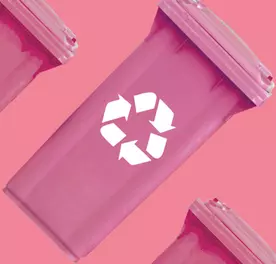

Hero banner custom title
Plant-based dyes might be the future of sustainable fashion
3 min
The fashion industry generates a great deal of pollution, in part because of the permanent damage that clothing dyes do to water and soil alike. Fortunately, alternatives do exist – one being southern China’s traditional and ancient technique of using natural vegetable juice.
Textile production requires a significant amount of water and is estimated to generate 1.2 billion tonnes of greenhouse gasses annually. It also discharges a variety of chemical products that are very damaging to the world’s aquatic systems. According to ADEME, the French environment agency, “20% of all water pollution can be attributed to textile dyeing and treatment”. In an attempt to satisfy customers demanding all kinds of color combinations, clothing manufacturers have been using products that are particularly polluting, hence dangerous for both Planet Earth and workers’ health.
Conventional dyes are made out of heavy metals, azo dyes or formaldehyde. On top of this (and before receiving their ultimate dye), garments are usually soaked in bleach – all of which explains the prevalence of chemical compounds in the clothes that people wear and in the world’s waterways. One example from Indonesia are the textile factories that drain their wastewater directly into the Citarum, the world’s most polluted river. Yet this very same body of water is an indispensable resource for the populations who use it to drink and for agricultural purposes.
One surprising solution: plant-based dyes
Luckily there are alternatives to the status quo, ones that can redress the ecological balance of people’s wardrobes. This starts with choosing natural colors (i.e. wearing undyed clothes) and garments made out of cotton or other plant-based materials. According to Chinese-American entrepreneur Kelly Shanahan,
"What you decide to wear on your body is important and has an impact. The clothes we choose reflect how we see ourselves and how others see us”.
All of which explains the responsible clothing brand that Shanahan has launched using “xiang yun sha” silk, a naturally dyed variant made in southern China according to ancestral techniques.
Shanahan dyes using a variety of Chinese yams, a vegetable (akin to the sweet potato) that is very rich in tannins. After the vegetable juice is applied to obtain the expected colour, the silk is sun-dried before being covered with mud harvested directly from the Pearl River, which is very rich in iron. Following this, the silk gets rinsed in river water. According to Shanahan the combination of iron and tannin creates “a chemical reaction that changes the fiber’s composition… a beautiful manufacturing process that has been done in the very same way for 500 years in this part of China”.
Older traditions sometimes contain their own depollution solutions
The process (ranging from the application to the rinsing of the dye) can be repeated up to thirty times depending on the desired color. Unlike a chemical dye-based industrial manufacturing process, production outcomes can vary, however, depending on environmental constraints. In Shanahan’s words, “There are lots of factors that you don't control directly, which can be frustrating. But it's also very liberating because you see Mother Nature taking over, i.e. there isn’t much you can do. It's really inspiring and fun to work in this way”.
Rectifying modern industrial techniques and protecting the environment does not always require far-fetched or complex technological solutions. Humankind has been familiar with some of these solutions for centuries. Shanahan's natural dyeing process, for instance, is deeply rooted in Chinese traditions:
“When craft workers make silk, they are thinking of Taoist principles like being in harmony with heaven and earth – all of which is deeply rooted in our culture”.
Clearly the whole of the fashion sector would benefit from reducing its environmental footprint. And it is worth noting Shanahan’s willingness to work as an intermediary for all brands interested in her approach, as long as they are sincere and innocent of greenwashing.












